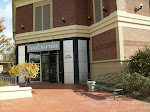Dr. Michelle Solomon
Dr. Michelle Solomon, a Richmond native, grew up in
Midlothian, VA. She received an undergraduate degree from James Madison
University with a B.S. in Health Sciences and a Biology minor. She completed
her doctoral studies at the Illinois College of Optometry (ICO) in Chicago. In her
time at ICO she was involved in several organizations which included the American
Optometric Student Association, National Optometric Student Association,
Contact Lens Society, Tomb and Key Honor Society (a society based on high academic achievement), Beta Sigma Kappa Honor
Society, and the Virginia Optometric Association.
Dr. Solomon is dedicated to providing the best care possible
to her patients. She is up to date with the latest developments in technology
and advancements within the realm of Optometry. She is a current member of the
following organizations:
-
American Optometric Association
-
Virginia Optometric Association
-
Beta Sigma Kappa International Honor Society
-
Tomb and Key Honor Society
In her spare time Dr. Solomon enjoys traveling and spending
time with family and friends. Just ask her about her trip to Hawaii this summer!
*** A Note from Dr. Paull ***
We are very excited to have Dr. Solomon as the new owner of the practice. There will be a transition during the month of September, and the 'official' name change will take place on October 1st, 2012. Dr. Amanda Paull will still be working at the office 1 day per week, as it has grown to be a 6-day per week practice. Thank you to all the wonderful patients who have helped it grow over its years in practice, and we look forward to growing in the future with Dr. Solomon! Dr. Paull will still be providing eye care in nursing homes from Virginia Beach to Richmond, but she and her family have moved to Williamsburg, which means that the practice will now be in the capable hands of Dr. Solomon. Please welcome her at your next eye exam!










